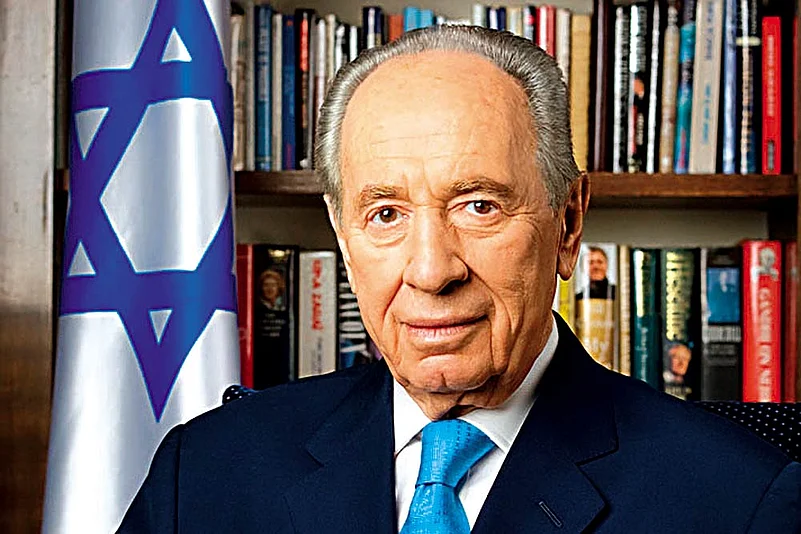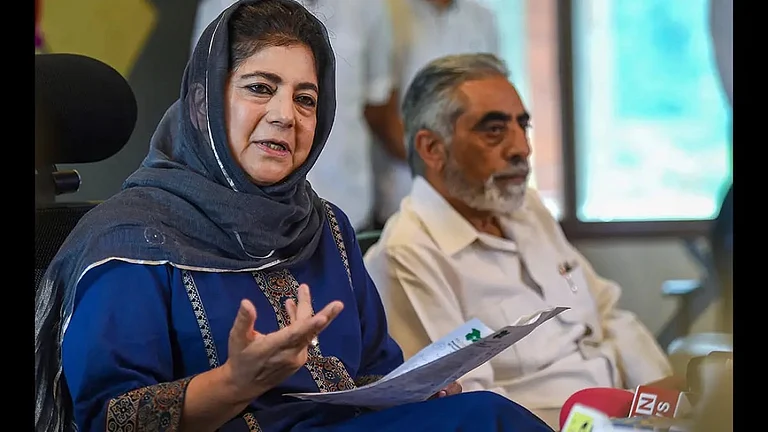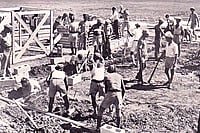At his funeral oration for Shimon Peres in September 2016, President Obama noted that he and Peres “...shared a love of words and books and history, and perhaps, like most politicians, we shared too a great joy in hearing ourselves talk....!” Peres talks through this book, part memoir and part biography, and his love for words and books and history becomes apparent.
Peres lived a life of action in the service of Israel for over six decades. He held every important position in the government and won the Nobel Prize for Peace. Yet in the mid-1990s, at the peak of his accomplishments, he described himself in Gabriel Garcia Marquez’s words as “an unpaid dreamer”. “We are ending a decades-long history dominated by war, and embarking on an era in which the guns will stay silent while dreams flourish,” Peres continued to pursue his dream, but both Israel and the Palestinians, and Israel’s Arab neighbours, have moved on, and the guns have not stayed silent. In a curious way, Israel’s achievements—in which Peres looms larger than life—have diminished the proportion of Israelis who share his dream, or are willing to make the compromises needed to bring it to reality. Peres wrote this book as a gift to them, according to the foreword written by his children.
Israelis today who grew up after its economic take-off in the 1980s have no experience of the extraordinary struggles that Peres describe. As a child in Poland, inspired by Zionism; emigrating to Israel at age 11 and thus escaping the massacres during Nazi occupation, which wiped out family members who stayed behind. Growing up in British mandated Palestine already marked by conflict and violence between Jews and Arabs. Pioneering work on a kibbutz, first in back-breaking agriculture and then raising sheep, while joining the socialist movement. Training for war in the Haganah—the armed underground; the bitter war of 1948—fought while resettling desperate refugees—and in which one per cent of the population was killed. Being catapulted into the leadership ranks of Israel at 25, procuring arms for the newly independent state—first from Czechoslovakia, then from black markets, then the US, and finally as director-general of the Defence Ministry, from France. The wars of 1967 and 1973, the fight against terror, including the audacious raid that freed hostages at Entebbe airport 2,000 miles from Tel Aviv.
Peres’s legacy will always be linked with the peace process in which he played a central role in the ’90s. The years 1992-5 marked the high noon of the peace process, with the signing in Washington of the Declaration of Principles and the Interim Accords between Israel and the PLO, the peace treaty with Jordan, and first negotiations with Syria. Ever the dreamer, Peres was already conjuring up ideas for a European style common market in a New Middle East.
It was not to be. Suicide bombings and terror attacks on Israelis, mainly by Palestinian opponents of the PLO, and extremists on both sides, slowed the peace momentum. Rabin’s assassination and Peres’s narrow loss in the 1996 election changed the course of history. Peres ended his political career as president of Israel—but he played a relatively small role in the failed Camp David negotiations in 2000, and the off again, on again discussions hereafter with the US.
Surprisingly, Peres is not often remembered for his great achievements as PM in 1984-86. He pulled Israel out of the disastrous war in Lebanon, rescued the Israeli economy from crisis and ushered in an era of rapid growth. The stabilisation plan of 1985 brought inflation down from 400 per cent to single digits, opened the economy and enabled the country to embark on a start-up revolution. Influx of a million new migrants from the former Soviet Union further boosted the economy. By the turn of the millennium Israel was a prosperous country and its aspirational, impatient, young, as well as the growing ultra-orthodox religious groups had little time for Peres’s dreams of reconciliation with Palestinians.
Today, concerns about Iran and ISIS preoccupy both Israel and its Arab neighbours, and Israel finds neither the partners or compulsion to reach a settlement with the Palestinians. Nevertheless, resolving the Palestinian issue remains integral to the Zionist dream itself. Israel, as Peres said, needs a Two State solution if it has to remain both Jewish and democratic. His critics at home and among the diaspora have still not articulated a credible alternative vision. They accused Peres of being a mere optimist. With the joy of hearing himself talk, Peres responds: “Optimists and pessimists die the same way. They just live differently.”


















